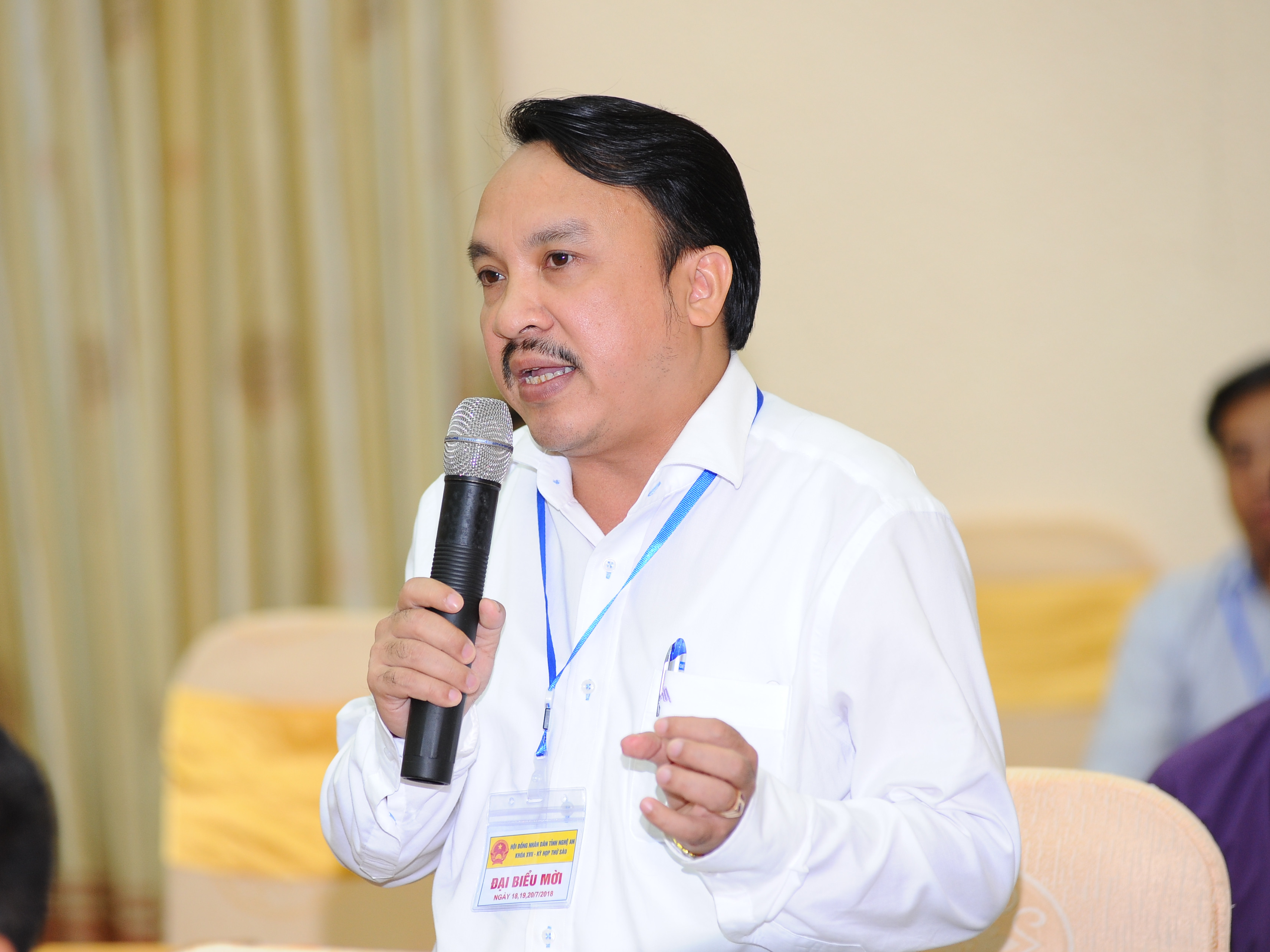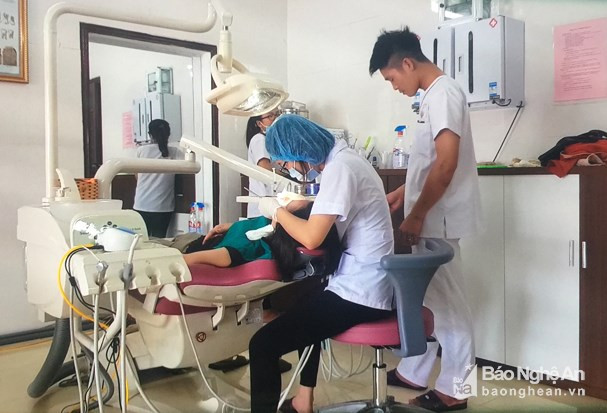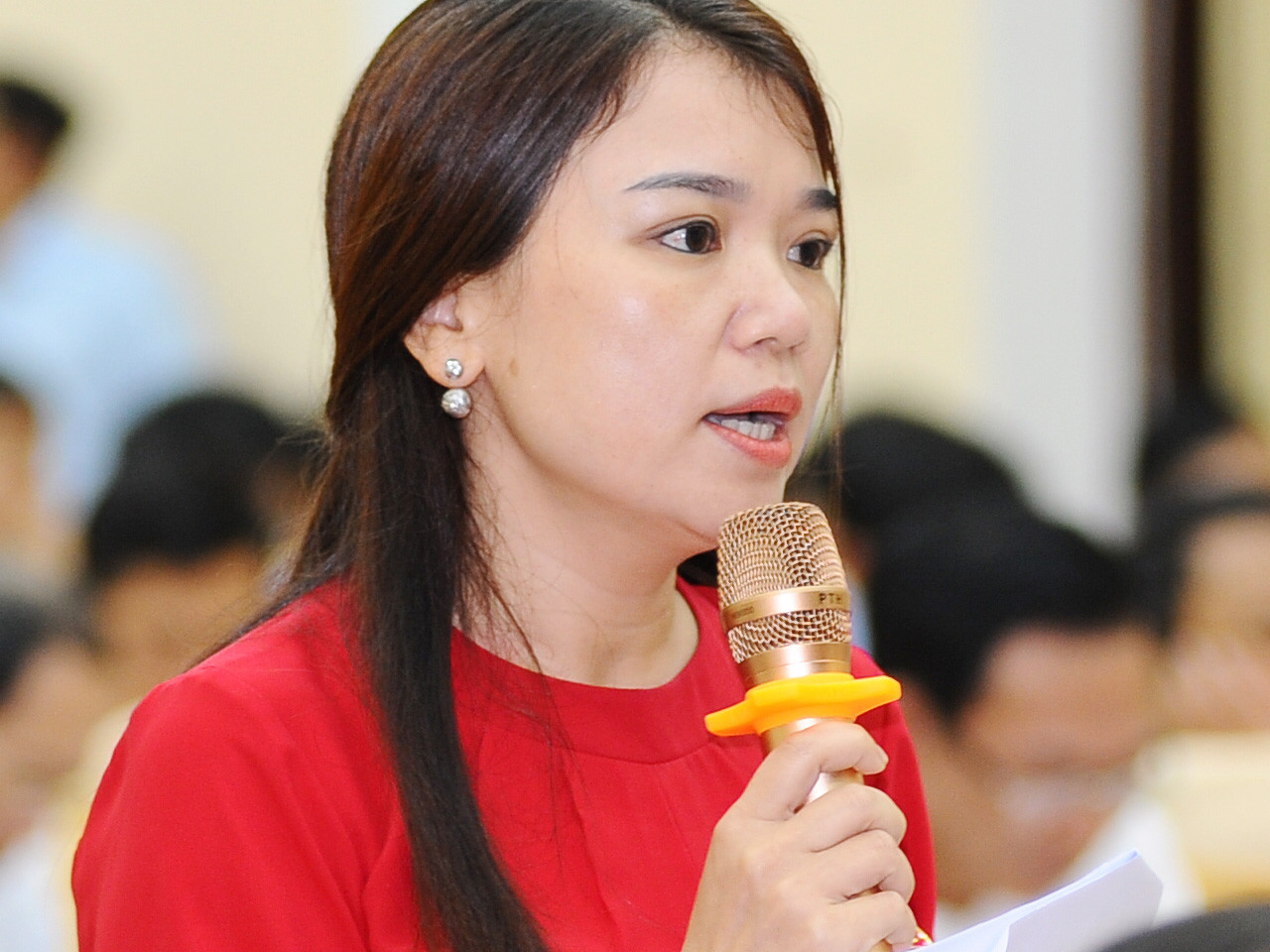Health Department leaders present "telling numbers" in private medical practice management
(Baonghean.vn) - Management of private medical and pharmaceutical practice is one of the issues that attracted the attention of the Provincial People's Council delegates at the 6th session. During the discussion session in the hall on the morning of July 19, Acting Director of the Department of Health Duong Dinh Chinh clarified a number of related issues.
In recent times, private medical and pharmaceutical practice in Nghe An has developed strongly in both quantity and quality, ranking third in the country after Hanoi and Ho Chi Minh City.
Currently, in the province, there are about 2,500 private medical and pharmaceutical establishments, including 12 hospitals, more than 400 medical examination and treatment facilities, 2,000 pharmacies... contributing to the supply of medicine, medical examination and treatment services, reducing the load on overloaded public hospitals.
| Clip: Duc Anh |
Make a determined effort
 |
| Mr. Duong Dinh Chinh - Acting Director of the Department of Health spoke during the discussion session in the hall. Photo: Thanh Cuong |
Speaking at the discussion session in the hall, Mr. Duong Dinh Chinh - Acting Director of the Department of Health said that, besides the positive aspects, private medical and pharmaceutical practice still has many potential "worries", requiring how to manage this issue well.
“Practicing beyond the permitted scope; advertising beyond the scope of expertise; signs not being in accordance with regulations; practitioners not having the correct title, not being present at the practice facility; listing incorrect drug prices; and practicing without a license…”, leaders of the health sector pointed out the shortcomings in private medical and pharmaceutical practice, emphasizing that these are common concerns of the whole country, not just Nghe An.
“These shortcomings lead to poor medical quality, create negative public opinion, directly affect people's health, and are of concern to many delegates,” said Mr. Chinh.
Realizing that, in recent times, Nghe An Health sector has made drastic efforts with local authorities and departments and branches to perform their tasks well.
 |
| As of June 15, 2018, Nghe An still has 156 unlicensed medical establishments. Photo courtesy |
Notably, the Department advised the Provincial People's Committee to issue Directive 03 dated January 29, 2018 on continuing to strengthen non-public medical and pharmaceutical practice, which stipulates that the District People's Committee is responsible to the Provincial People's Committee, not allowing illegal medical and pharmaceutical practice to occur in the management area from March 31, 2018.
“The industry has organized the examination and issuance of practice certificates from the previous frequency of once a month to twice a month, updated on the Department of Health information portal. In the near future, it may be increased to three times a month to grant licenses to private medical and pharmaceutical establishments. We also sent official dispatches to directors throughout the industry on rectifying and strictly managing staff in the agency when participating in non-public medical and pharmaceutical practice activities…”, the acting Director of the Department of Health stated the industry’s innovation in implementing Directive 03.
The Department of Health has established inspection teams for private medical and pharmaceutical practices in 14/21 districts, cities and towns. Currently, 21/21 districts, cities and towns have issued plans to implement Directive 03, 100% of which have established interdisciplinary inspection teams to inspect the above Directive.
Affirming that Nghe An is one of the provinces that has been most determined in the country in this regard in recent times, Mr. Duong Dinh Chinh proved it with "speaking numbers": "At the beginning of this year, we had 685 unlicensed establishments, by March 31, 2018 there were only 483, and now this number has decreased to 156 unlicensed establishments."
However, Mr. Duong Dinh Chinh also added that because private medical and pharmaceutical practices are expected to continue to expand in the coming time, causing more problems, it is necessary to conduct more regular and synchronous inspection and supervision work in this field.
Regulations for converting drugstores into pharmacies
 |
| Delegate Phan Thi Thanh Thuy (delegation group of Thai Hoa town). |
Questioning the leaders of the Department of Health during the discussion session in the hall, delegate Phan Thi Thanh Thuy (Thai Hoa town delegation) cited 9 specific cases in 4 wards of Thai Hoa town, saying that although these facilities met the conditions, they had not been granted operating licenses due to being stuck with Decree 54/2017/ND-CP.
Ms. Thuy recommended that the Department of Health issue licenses to qualified facilities, limiting problems when practical activities occur, creating negative impacts on public opinion.
Regarding this issue, the acting Director of the Department of Health personally explained and clarified, stating that not only the 9 cases in Thai Hoa, but in the province there are 32 drugstores that cannot be converted to pharmacies because they do not meet the conditions.
“According to Decree 54, by June 20, 2020, drugstores in towns and cities that have expired their licenses will no longer be licensed and must switch to operating as pharmacies. After receiving a proposal from Thai Hoa town, we have made a document and received a response from the Ministry of Health that we must adhere to the Decree. Specifically, the owner of a drugstore is required to be a secondary school pharmacist and if he wants to switch to a pharmacy, he must meet the condition of being a university pharmacist. In cases where these conditions are not met, we cannot grant a license,” Mr. Chinh analyzed.
The Department of Health leaders noted that this regulation only applies to towns and cities, while in communes, pharmacy operations continue normally.
The Acting Director of the Department of Health also clarified a number of opinions that many voters and delegates were interested in, such as the issue of patient referrals, questions from Quy Hop voters about medical examination and treatment at Tay Bac General Hospital, etc.
